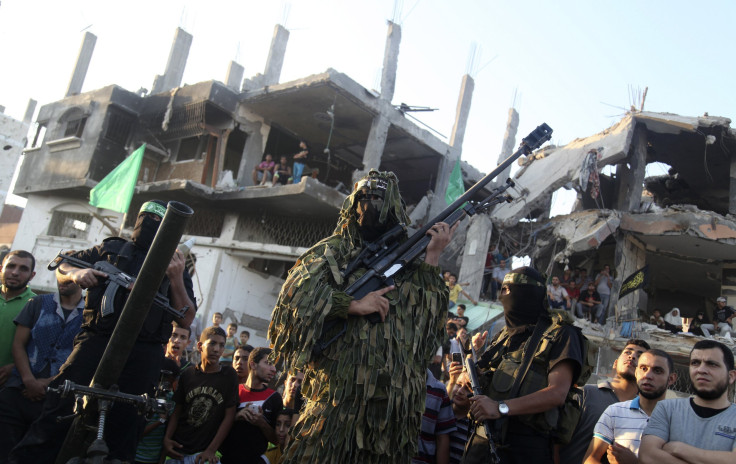Arab Bank Liable Over Hamas Attacks

(Reuters) - A U.S. jury on Monday found Arab Bank Plc liable for providing material support to Hamas, and said it must compensate victims of two dozen attacks the Islamic militant group was suspected of carrying out in Israel and the Palestinian territories.
Jurors needed less than two days of deliberations to reach their verdict after a six-week trial in Brooklyn federal court that lawyers described as the first terrorism financing civil case to reach trial in the United States.
Nearly 300 Americans who were either victims or related to victims of the attacks had sued Arab Bank in 2004, accusing it of violating the Anti-Terrorism Act, which lets victims of U.S.-designated foreign terrorist organizations seek damages.
A trial on damages will be held later, but in the meantime Arab Bank said it would appeal Monday's verdict. The bank said in a statement that the verdict "comes as no surprise" after a series of what it considered legally incorrect court rulings that kept it from mounting a proper defense, and effectively "put Hamas on trial."
The bank, which is based in Jordan, also said the decision "exposes the banking industry to enormous liability" for simply providing customers with routine services.
Shand Stephens, a lawyer for Arab Bank, predicted that the U.S. 2nd Circuit Court of Appeals "is going to reverse this."
Mark Werbner, a lawyer for some of the plaintiffs, said the verdict sends a message that "when a bank opens its doors to terrorists, they're going to be held accountable."
Arab Bank had been accused of knowingly maintaining accounts for Hamas operatives, and financing millions of dollars in payments for families of suicide bombers and those imprisoned or injured during a Palestinian uprising that began in 2000.
"That is how we stop terrorism," said Tab Turner, a lawyer for the victims, said in his closing argument last week. "You don't stop them with bullets. You don't stop them with smart bombs.... How you stop them is you take the money away."
Lawyers for Arab Bank countered that their client merely provided routine banking services, and that most of the people and organizations that the plaintiffs claimed had received the services had not been designated by the U.S. government as terrorists during those years.
To find liability, jurors had to conclude that Arab Bank knowingly supported Hamas, that its support was a "substantial factor" in the bombings, and that the attacks were a "reasonably foreseeable" result, according to the judge's instructions.
Also on Monday, the 2nd Circuit ruled unanimously that Royal Bank of Scotland Group Plc's National Westminster Bank unit should defend against damages claims by terrorism victims over banking services it provided to a charity linked to Hamas.
The case is Linde et al. v. Arab Bank, U.S. District Court for the Eastern District of New York, No. 04-2799.
© Copyright IBTimes 2024. All rights reserved.











